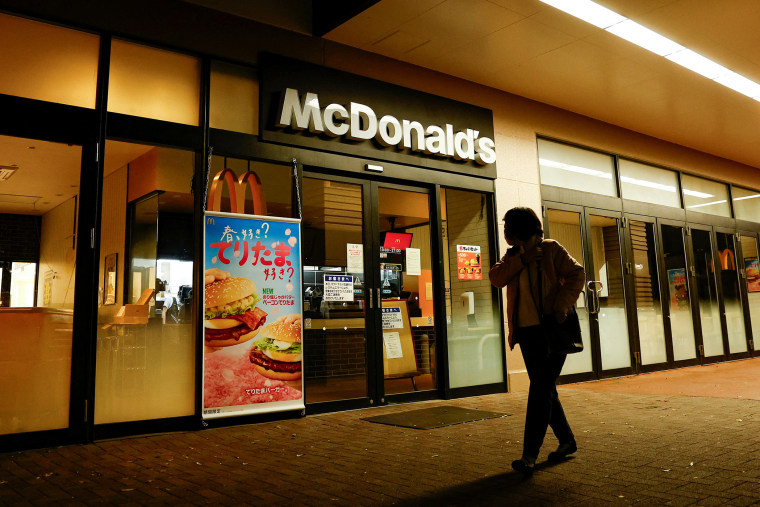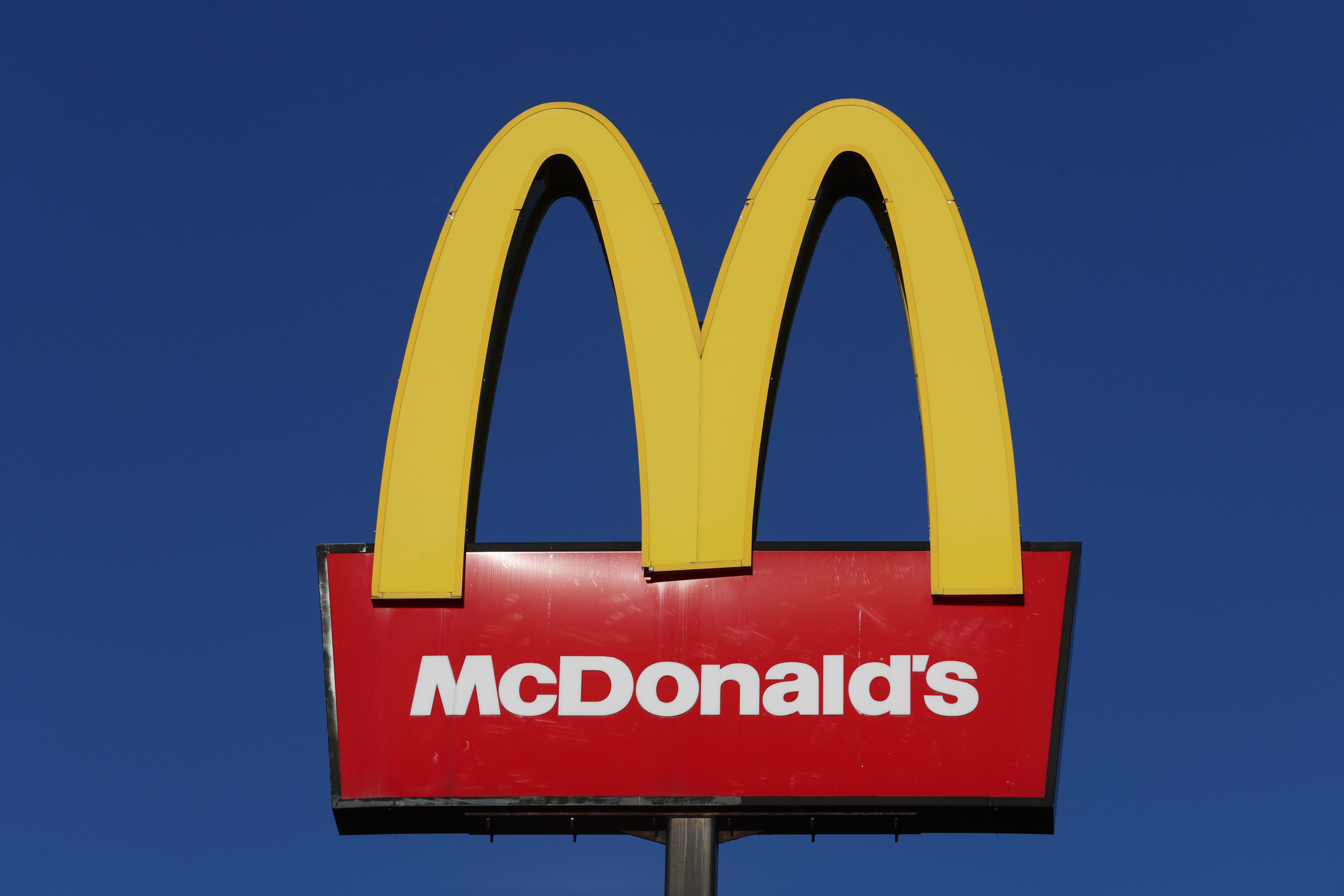McDonald's is a multinational fast food chain that operates in over 100 countries worldwide. On March 15, the company reported system failures at its restaurants across the globe, causing temporary closures and disruptions to online ordering systems. The issue was not related to a cybersecurity event but rather an internal technology outage. McDonald's has stated that it is working on resolving the problem as quickly as possible.
McDonald's System Failure Causes Temporary Closures Worldwide
Bangkok, Thailand Taiwan, Province of China[a]McDonald's is a multinational fast food chain that operates in over 100 countries worldwide.
On March 15, the company reported system failures at its restaurants across the globe, causing temporary closures and disruptions to online ordering systems. The issue was not related to a cybersecurity event but rather an internal technology outage.



Confidence
70%
Doubts
- It's unclear what caused the system failures at McDonald's restaurants worldwide.
- The company has not provided any specific details about how long it will take to resolve the issue.
Sources
70%
Unique Points
- McDonald's restaurants across the world have been temporarily closed due to a global IT outage.
- The issue is not related to a cybersecurity event.
- Internal systems in Australian restaurants were offline since about 3:10 p.m. local time, according to News.com.au.
Accuracy
- The issue is not related to a cybersecurity event.
Deception (50%)
The article is deceptive in several ways. Firstly, it claims that the issue affecting McDonald's restaurants worldwide is not related to a cybersecurity event. However, this contradicts information provided by other sources such as Reddit users who have reported issues with the company's network being hacked. Secondly, while some stores are only taking cash orders and others are completely closed due to technical difficulties, the article claims that customers can still purchase food using mobile and self-ordering kiosks in Hong Kong. This is not accurate as Facebook posts from users in Hong Kong indicate that these options are unavailable. Lastly, the article states that issues with ordering through the McDonald's app have been resolved in the U.K., but this contradicts information provided by The Telegraph which reports that problems with orders on the app were only resolved at 6:50 a.m. ET.- The issue affecting McDonald's restaurants worldwide is not related to a cybersecurity event.
Fallacies (85%)
The article contains several examples of informal fallacies. The author uses an appeal to authority by citing a spokesperson from McDonald's U.S., but does not provide any evidence or context for their statement. Additionally, the author uses inflammatory rhetoric when describing the impact of the outage on customers and employees.- The issue is now being resolved.
Bias (85%)
The article reports that McDonald's restaurants across the world have been forced to temporarily close due to a global IT outage. The author does not provide any context or background information about the issue and only mentions that it has affected multiple countries including Australia, China, Japan, Canada, South Korea, Taiwan and Germany. Additionally, there is no mention of who caused the outage or if it was related to cybersecurity events.- McDonald's restaurants across the world have been forced to temporarily close
- The issue has affected multiple countries including Australia
- There is no mention of who caused the outage or if it was related to cybersecurity events.
Site Conflicts Of Interest (50%)
Aliss Higham has a conflict of interest with McDonald's as she is reporting on the global IT outage that affected their restaurants in Australia and other countries. She also reports on issues related to technology and internal systems offline in Australian restaurants since about 3:10 p.m.- Aliss Higham has a conflict of interest with McDonald's as she is reporting on the global IT outage that affected their restaurants in Australia and other countries.
Author Conflicts Of Interest (50%)
Aliss Higham has a conflict of interest on the topic of McDonald's as she is reporting for News.com.au which is owned by Nine Entertainment Co., a company that owns several fast food chains including McDonald's.- [computer system failure] Hong Kong customers unable to use mobile and self-ordering kiosks
- [system failure] McDonalds Japan on X, formerly Twitter
- Taiwan suspends Happy Delivery and telephone ordering
- UK users report trouble with orders via McDonald's app
93%
McDonald's system outages have been reported worldwide. The chain says they're getting fixed
The Associated Press News Friday, 15 March 2024 10:12Unique Points
- System failures at McDonald's were reported worldwide on Friday
- The problems are now being resolved by the fast food chain.
- , In Japan, operations are temporarily out at many of their stores nationwide due to a system failure.
- A computer system failure in Hong Kong knocked out orders online and through self-serve kiosks.
- Some McDonald's restaurants were operating normally again after the outage
- A worker at a restaurant in Bangkok said that system was down for about an hour but allowed it to still accept cash for orders.
- The technology failure has been resolved in Denmark and its restaurants are open now.
Accuracy
- System failures at McDonald's were reported worldwide on Friday, shuttering some restaurants for hours and leading to social media complaints from customers.
- McDonald's restaurants across the world have been temporarily closed due to a global IT outage.
- The issue is not related to a cybersecurity event.
Deception (100%)
None Found At Time Of Publication
Fallacies (85%)
The article contains several examples of informal fallacies. The author uses an appeal to authority by stating that McDonald's is a global brand and its problems are widespread. This statement implies that the problem must be legitimate because it comes from a well-known company. Additionally, the author uses inflammatory rhetoric when describing customers as- complaining on social media
- calling it 'a system failure'
- 'technicians are updating the system' sign
- 'All McDonald's restaurants are connected to a global network and that is what’s messed up'
Bias (100%)
None Found At Time Of Publication
Site Conflicts Of Interest (100%)
None Found At Time Of Publication
Author Conflicts Of Interest (0%)
None Found At Time Of Publication
80%
Unique Points
- McDonald's restaurants suffered a global tech outage on Friday.
- The issue affected McDonald's stores in Japan and Australia, while social media users also reported disruption in China, Britain and elsewhere across Asia and Europe.
- <Internal systems> in Australian restaurants were offline since about 3:10 p.m. local time, according to News.com.au.
Accuracy
- The issue affected McDonald's stores in Japan and Australia, while social media users also reported disruption in China, Britain and elsewhere across Asia and Europe.
Deception (50%)
The article is deceptive in several ways. Firstly, the author claims that the issue was not a cybersecurity incident when there is no evidence to support this claim. Secondly, the author states that McDonald's Japan had temporarily suspended operations due to system failure but does not provide any information on how many stores were affected or for how long they were closed. Thirdly, the article quotes social media users reporting disruption in China and Britain without providing any specific details about these incidents.- The author claims that the issue was not a cybersecurity incident when there is no evidence to support this claim.
Fallacies (85%)
The article contains several fallacies. The first is an appeal to authority when McDonald's states that the issue was not a cybersecurity incident. This statement assumes that McDonald's has expertise in determining whether or not their technology outage was caused by a cyber attack, which may not be true. Additionally, there are no quotes from any experts on this matter.- The unspecified issue affected the fast food chain’s stores in Japan and Australia.
Bias (85%)
None Found At Time Of Publication
Site Conflicts Of Interest (100%)
None Found At Time Of Publication
Author Conflicts Of Interest (0%)
None Found At Time Of Publication